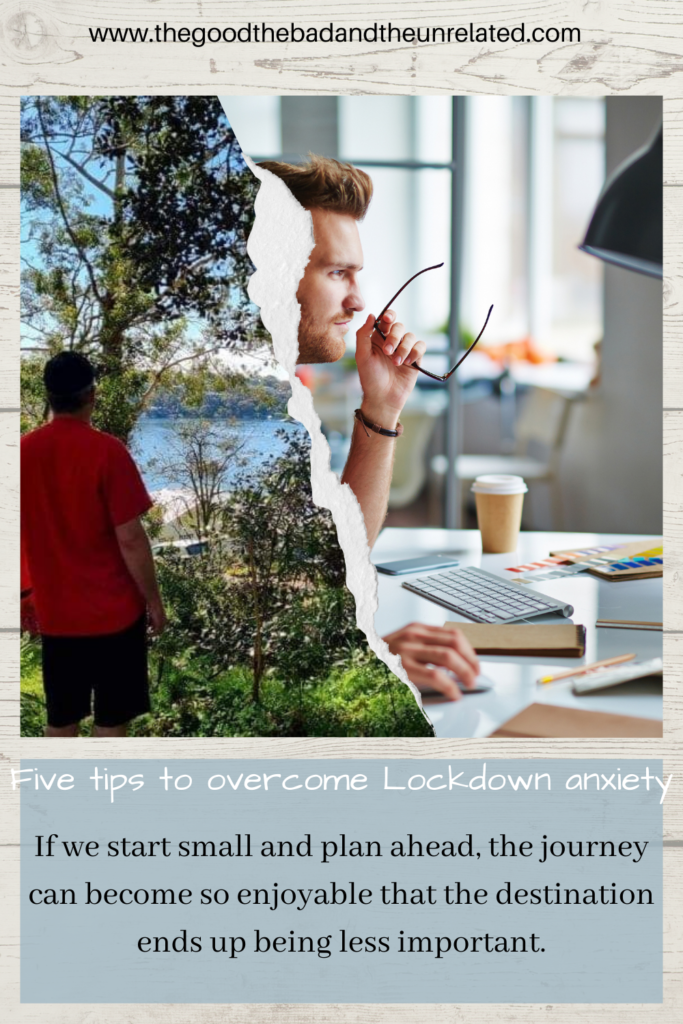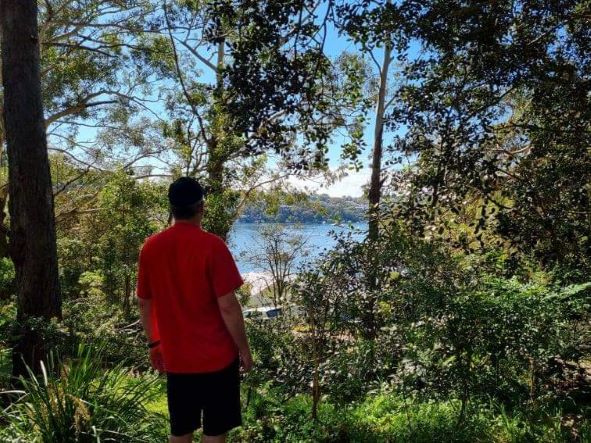Mental preparation for facing challenging times is an important, but often overlooked aspect of life. We prepare for all manner of experiences, becoming physically fit, losing weight, getting haircuts and grooming. We read up on things, review our notes and rehearse. Why then, do we not take as much time to mentally and spiritually prepare for the future as we do physically? Just like the athlete who tapers up their training, visualises victory and eats a specific diet because they want to win, we need to prepare our minds for challenges. Coming out of lockdown and living with Covid is just one of those challenges that need preparation if we are to overcome isolation anxiety.
Before Covid, we all had our routines. We saw the same people and followed the same basic steps. Whilst I wasn’t a social butterfly, I would still see other parents at school pick up and kids activities, I would have coffee with a friend or two and I would travel to meet family. All of a sudden, with covid and lockdown, this ended suddenly. I got used to staying safe within my castle walls. It felt very much like Depression based isolation, except this was for rational reasons and everybody was doing it.
Having isolated myself long before it became the norm, due to mental health issues, I have had to face the inevitability of stepping out and becoming vulnerable again. Because I have struggled with the intense anxiety related to a perceived threat in the past, I have some insights into the best approach that may help. Facing reality isn’t rocket science, but it can feel just as difficult, if we don’t plan ahead. Here then are a few tips to get you going again:.
What do you want to keep?
Our routines and processes tend to build up in our minds like clutter does around the house. Often we do things because we have always done them. We keep them around because they make us feel safe and structured, even if they serve little purpose, because being busy drowns out the noise of anxiety. Coming out of lockdown or rebuilding your life after circumstances that have changed the whole world, is definitely scary, but it is also incredibly valuable. It is the perfect opportunity to declutter your mind.
I am not an advocate of assessing the value of every tiny aspect of our lives. If we take care of the big issues, the little ones tend to fall in line. That said, find a quiet spot and make a list of everything that is important and makes your life better. Focus on what you don’t miss from before and what you do like about what you’ve changed. List everything, including regular exercise, dog walking, time with the kids, reading, praying, meditation, yoga, in fact anything you love.
Follow this up with a similar list of things that you would change if you could. List the things that drag you down and cause you to groan inwardly. Once you have these lists and compare them, you will be able to much more clearly visualise a pathway to a better life.
Draw up a plan
Whilst you might set yourself a goal of running a marathon, chances are that you won’t run 42 kilometres on the first day of training. Long distance running is a good metaphor here, because any distance can be built up to with the right training regime. A healthy regime offers a steady plan, increased slowly to achieve your goals whilst taking into account your needs. Coming out of lockdown or a period of anxiety is no different, Whatever your goal, draw up a plan.
I do this planning regularly. Prior to Lockdown, I realised at one point that I was becoming unhealthy from hiding away too often. I also realised that if I was at home with the curtains drawn, I would stay at home. With that in mind, I would exercise immediately after I dropped my children at school because I was already outside. Added to this, I would organise a coffee with a dear old friend afterwards so that I had something to look forward to. Gradually I increased this until I had a healthy routine with no anxiety.
The beauty of a plan of attack to achieve things we value, is that after it is created, we don’t have to think too much or over analyse. The plan is there to be followed. Our anxious brain may be yelling ‘don’t do it’, but we can ignore it and follow the plan, because it is what we want.
Start with small steps
The problem with jumping right in, is that often we will jump right back out again. The sudden change can cause us to flee. Anything valuable in our life takes time and exposure. That is why we have things such as training, rehearsals, revision and prac. They prepare us for the real thing. In psychology, the gradual, controlled exposure to a fear or phobia is called ‘flooding’. Whilst facing some phobias is serious business, requiring the guiding hand of a Psychologist, the essence of controlled exposure can be used daily to help us face life again.
The essence of this notion is in the word ‘control’. By planning ahead and taking small steps, you are facing your anxiety in bite sized chunks whilst remaining in control. To again use the notion of a long distance runner, if on day one, you run fifteen kilometres, by day two you will be so stiff and sore that you will most likely give up. Better to start much shorter and establish a routine first.
If you fear crowds, don’t go to the football or a rock concert on your first day out. It could end up a disaster. Instead go out for a coffee close to home. Get used to the water before you start swimming.
Have a buddy to talk to
Whenever we face a fear, no matter how small, the voices in our head will start on us. It is natural to have doubts, especially after such a long time hidden away. That is why having a friend to talk to or even challenge the world with, is a valuable thing. When I walk with my wife or my buddy, I always feel stronger and more positive. My friends help me to keep my failures in perspective. They keep me honest.
Often we hide our fears and weaknesses away from loved ones in a vain attempt to always appear strong and with it. This is a real shame, because helping us to handle the tough stuff is what friends are actually for. Friends care. If you only share the fun stuff, then you have acquaintances, not friends. Friends remind us that we’ve done all this before. Their reassurance and confidence becomes our reassurance and confidence in overcoming anxiety.
Celebrate the victories…even the small ones
Lockdown and isolation can really feel like being in retreat. We have lost some of the ‘battle fitness’ we relied on when we were last out there. That is why we need to celebrate the small victories as well as the big ones. If you haven’t been out in a month, then after you do go out as per your plan, celebrate. Whenever you tick off one of your goals, pat yourself on the back.
The fact is, if you have taken the time to work out what is important, have planned ahead, taken small steps and talked about it with a friend, you are closer to what is important than you ever were before. Being busy is like a badge of importance that we wear these days. It can take the joy out of everything because we are always pressing ahead. By celebrating the small wins, we are reminding ourselves that we are in the here and now and open to joy.
Building the life you want, when considered as a whole, can be overwhelming. If we start small and plan ahead, the journey can become so enjoyable that the destination ends up being less important.
Links
Challenging fear » The Good The Bad and The Unrelated
Change Your Thinking, 3rd Edition by Sarah Edelman | 9780733332241 | Booktopia
Meditation 1: Mindfulness of body and breath – YouTube



Helpful comments 🙂
Thanks pal.
anxiety is bad for our overall health. It’s really important to address it. Great post thanks!
Thanks for the supportive comment.
Definitely helpful to remember the things that made lockdown great… and time now to keep sight of the important things and work to keep the good habits going. So many busy distractions!
So true. It won’t be easy, but worth it.